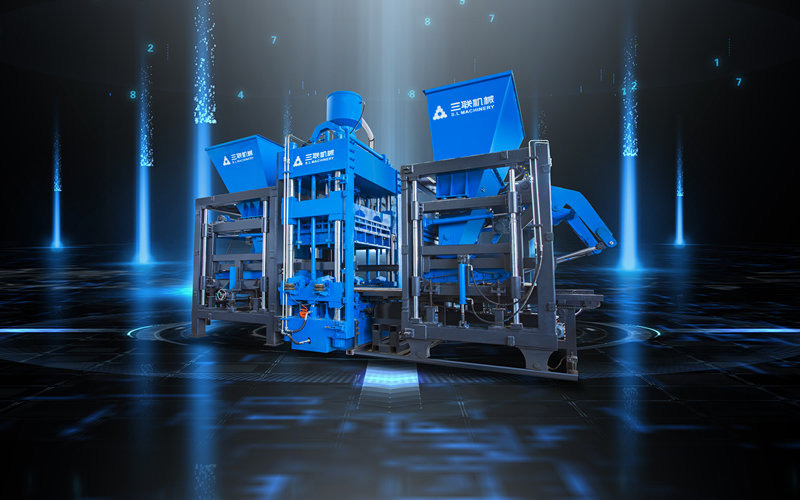
In order to promote the sustainable and healthy development of the comprehensive utilization of resources industry (brick and tile industry), recently, the Ministry of Finance and the State Administration of Taxation issued the value-added tax policy for improving the comprehensive utilization of resources, namely the "Announcement of the State Administration of Taxation of the Ministry of Finance on Improving the Value-Added Tax Policy for Comprehensive Utilization of Resources" (Ministry of Taxation General Administration Announcement No. 40 of 2021)
1. Waste residue, waste water (liquid), waste gas
1.1 Name of comprehensively utilized resource: waste residue
Names of comprehensive utilization products and labor services: bricks and tiles industry (excluding sintered ordinary bricks), blocks, ceramsite, wallboards, pipes (pipe piles), concrete, mortar, road well covers, road guardrails, fireproof materials, refractory materials (magnesium-chromium (except bricks), thermal insulation materials, mineral (rock) wool, glass-ceramic, U-shaped glass.
Technical standards and related conditions: More than 70% of the raw materials of the product come from the listed resources.
Tax rebate ratio: 70%
2. Name of comprehensively utilized resources: construction waste, coal gangue
Names of comprehensive utilization products and labor services: recycled aggregates for construction, sintered products made from construction waste, road materials, and backfill materials for construction.
Technical standards and related conditions:
2.1. More than 70% of the raw materials of the product come from the listed resources;
2.2. If the product uses construction waste as raw material, it conforms to "Recycled Coarse Aggregate for Concrete" (GB/T 25177-2010) or "Recycled Fine Aggregate for Concrete and Mortar" (GB/T 25176-2010) or "Sintered Ordinary Aggregate" Bricks" (GB/T 5101-2017) or "Inorganic Mixtures of Recycled Aggregates of Road Construction Waste" (JC/T 2281-2014) or "Recycled Aggregate Floor Tiles and Permeable Bricks" (CJ/T 400-2012) Or "Technical Specifications for Recycled Aggregate Pervious Concrete Application" (CJJ/T 253—2016) or "Cement-based Backfill Materials" (JC/T 2468—2018) or "Construction Waste Recycled Aggregate Solid Bricks" (JG/T 505— 2016) or "Lightweight Partition Wall panels for Construction" (GB/T 23451-2009) or "Glass Fiber Reinforced Cement Lightweight Porous Partition Panels" (GB/T 19631-2005) or "Recycled Micropowder for Concrete and Mortar" "(JG/T 573-2020) or "Construction Solid Waste Recycled Sand Powder" (JC/T 2548-2019) technical requirements; using coal gangue as raw material, in line with "Construction Sand" (GB/T 14684-2011) ) or the technical requirements specified in "Pebble and Crushed Stone for Construction" (GB/T 14685-2011);
2.3. The annual disposal production capacity of the construction waste recycling project is not less than 250,000 tons.
Tax refund rate: 50%
3. Agricultural and forestry residues and others
3.1 Name of comprehensively utilized resources: kitchen waste, livestock and poultry manure, rice husks, peanut husks, corn cob, camellia husks, cottonseed husks, three leftovers, secondary fuelwood, crop straw, bagasse, as well as those produced by fermentation of the above-mentioned resources of biogas.
Name of comprehensive utilization products and services: biomass briquette, biomass crushed material, biological natural gas, pyrolysis gas, biogas, biological oil, electricity heat.
Technical standards and related conditions:
3.1.1. More than 80% of the raw materials or fuels of the products come from the listed resources;
3.2.2. The taxpayer complies with the "Boiler Air Pollutant Emission Standard" (GB 13271-2014), "The Thermal Power Plant Air Pollutant Emission Standard" (GB 13223-2011) or "Household Waste Incineration Pollution Control Standard" (GB 18485-2014) specified technical requirements.
Tax refund ratio: 100%
3.2 Labor Services for Comprehensive Utilization of Resources.
Name of comprehensively utilized resources: garbage treatment, sludge treatment and disposal services.
Technical standards and related conditions: Domestic waste treatment should meet the technical requirements specified in the "Standards for Pollution Control of Domestic Waste Incineration" (GB 18485-2014) or "Standards for Pollution Control of Domestic Waste Landfills" (GB 16889-2008).
Tax rebate ratio: 70%

In order to promote the sustainable and healthy development of the comprehensive utilization of resources industry (brick and tile industry), the state has a series of preferential policies. For questions about policies and solid waste treatment machine, you are welcome to contact our company at any time. S.L Machinery is willing to work with you to draw a blueprint for green development.
S.L Machinery makes perfect construction, professionally focus on light weight 3d wall panel machine, sandwich panel machine, EPS Sandwich panel production line, high end servo system concrete block machine, concrete mixing plant etc. Warmly welcome to contact us by email jerry@sl-machine.com.








